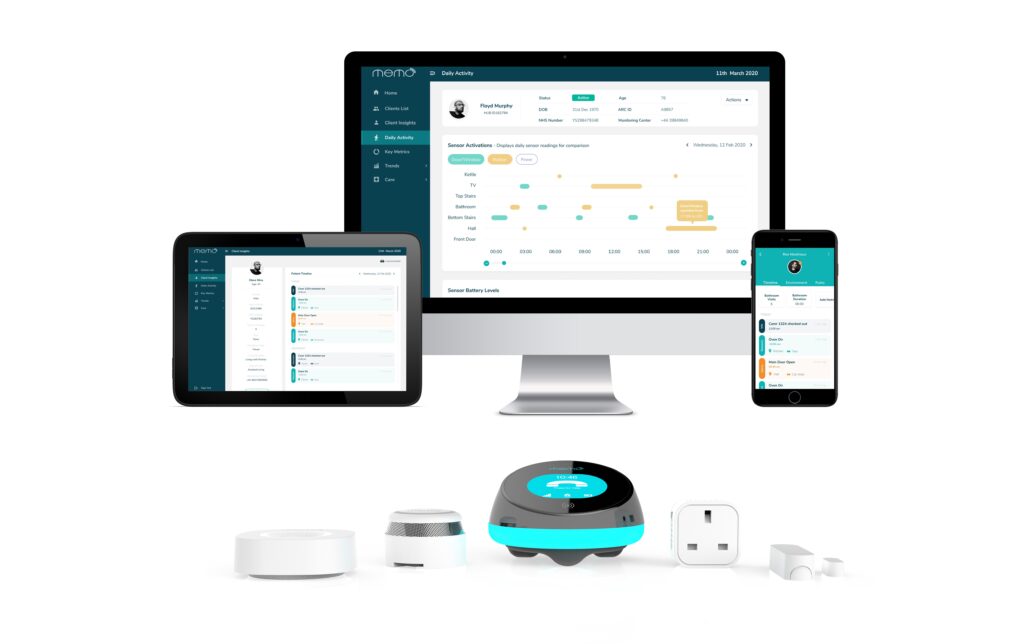One of the UK’s leading digital telecare providers has been added to a list of assessed suppliers in Scotland after successfully completing a government-backed cybersecurity evaluation.
Alcuris took part in a ‘digital telecare security assessment scheme‘, which was launched by Digital Telecare – part of the Scottish Local Government Digital Office – to access the cybersecurity risk associated with new telecare suppliers before integrating their equipment.
Businesses that pass the security checks are listed on the Digital Telecare Playbook as a supplier which provides an “appropriate level” of cybersecurity. Alcuris’ services Memo Hub, Memo App and Connec+ will all join the list
Recent research has shown that third-party security is the number one risk to an organisation’s data and service delivery.
Organisations now have a legal responsibility to ensure that they conduct due diligence on any supplier who will be processing, or will be providing software that processes personal data.
According to Alcuris, this due diligence has proven to be a difficult task for individual organisations to carry out, with suppliers reluctant to divulge sensitive security data, and in some cases not seeing the return on investment in security at all.
Digital Telecare’s assessment scheme saves organisations from carrying out these assessments themselves. The evaluation requests that suppliers provide the following information:
- Evidence of the company’s Information Security Management System
- Results of the independent penetration test completed on each device/service the supplier wants to be assessed
- A completed Supplier Security Questionnaire provided by Digital Telecare. The questionnaire is based on the 10 Steps to Cyber Security guidance published by the National Cyber Security Centre (NCSC); establishing the supplier’s readiness for defence of its digital telecare systems and information that falls into the scope of the solution they provide to partners


The programme was also designed to support Health and Social Care Partnerships (HSCP) across Scotland and suppliers with the transition to digital telecare.
Digital Telecare works closely with partners to identify the requirements needed to ensure a smooth, safe, transition to a digital service for citizens in recipient of telecare in their home environments.
The telecare sector is currently undergoing a transformation, with analogue based home alarm services due to be switched off by 2025.
Telecare is a remote care and support service for elderly or disabled people which provides users with personal and home alarms that alert a control centre when they are in difficulty so help can be sent.
Andy Grayland, chief information security officer, Digital Office for Scottish Local Authorities said: “Both this assessment scheme, and Alcuris’ positive response to it, will help ensure that vulnerable telecare users across Scotland are protected against the threat posed by cyber criminals when using these services.”
James Thomson, business development manager for Scotland said: “This is excellent news for telecare providers and users across Scotland and ensures confidence in the cybersecurity of our digital solutions. The Scottish Digital Office should be commended for their ‘once for Scotland’ approach.”
Alcuris welcomed the Digital Offices’ once for Scotland approach, saying it “recognises the value” it provides across Scotland.
The company said: “We would like to see a ‘once for the UK’ approach adopted and today we have written to the Telecare Services Association (TSA), to ask if they can collaborate with the Digital Office to enable the benefits of their security assessment programme to be available across the rest of the UK. This will provide increased confidence, remove duplication of work (for buyers and suppliers), increase protection from cyber criminals and provide a minimum benchmark for cyber-security.”
Over the next few years, digital telecare solutions will become the norm and it is envisaged that a high number of future services will be deployed with additive internet of things (IoT) based technologies that rely on sensors to generate various home care alerts around air quality levels, damp and energy efficiencies, as well as more intervention based services including monitoring of falls.




